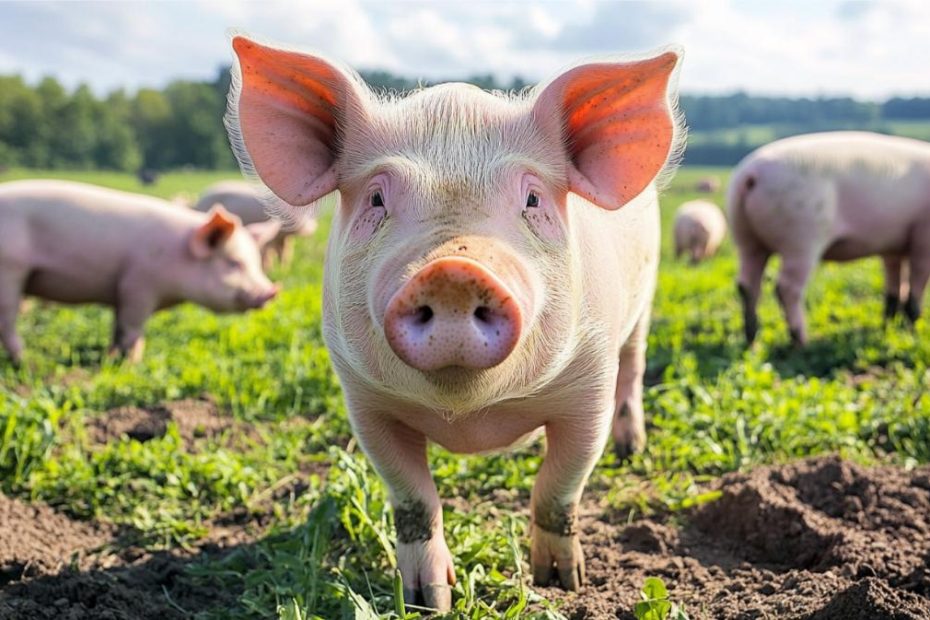Imagine a world where farm animals live happy lives, roaming free and enjoying their days. Sounds nice, right? But can we really make this a reality?
The push for ethical farming has gained momentum in recent years. More people are asking tough questions about how we treat animals raised for food.
You might be surprised to learn that improving farm animal welfare is not just possible, but can also benefit farmers and consumers alike. It’s not all sunshine and rainbows, though. Balancing animal well-being with the demands of feeding a growing population is tricky.
You’re probably wondering how we can make meaningful changes without breaking the bank or causing food shortages.
As you dig into this topic, you’ll find that smart farming technologies are playing a big role in monitoring animal health and happiness.
But it’s not just about gadgets and gizmos. It’s about rethinking our relationship with the animals that provide our food.
Are you ready to explore the tasty world of ethical farming? Let’s dive in!
Key Takeaways
- Ethical farming can improve animal welfare while still meeting food production needs.
- New technologies are helping farmers monitor and enhance animal well-being.
- Public awareness and consumer choices play a crucial role in promoting ethical farming practices.
The Cornerstones of Ethical Farming

Ethical farming rests on key principles that put animal well-being first. These ideas shape how we treat farm animals and what we expect from modern agriculture.
Defining Animal Welfare and Ethics
Animal welfare is about more than just basic needs. It’s making sure farm animals have good lives. This means they should be healthy, comfortable, well-fed, and able to do normal animal behaviors.
Ethics in farming looks at what’s right and wrong in how we treat animals. It asks big questions like: Is it okay to use animals for food? How much space do they need? What counts as humane treatment?
You might wonder how farmers balance animal needs with running a business. It’s tricky, but many believe happy animals are more productive.
Evaluating Animal Welfare: From Five Freedoms to Enrichment
The Five Freedoms have been a go-to guide for animal welfare since the 1960s. They say animals should be:
- Free from hunger and thirst
- Free from discomfort
- Free from pain, injury, or disease
- Free to express normal behavior
- Free from fear and distress
But now, people are talking about “enrichment” too. This means giving animals things to do that make their lives more interesting and fun.
For pigs, it might be toys to play with. For chickens, places to perch and dust bathe. These extras help animals be happier and healthier.
Public Concern and the Role of Legislation
You’ve probably noticed more people care about where their food comes from. This public concern about farm animal welfare has led to changes in laws and farming practices.
Many countries now have rules about how farm animals should be treated. These laws cover things like:
- Minimum space requirements
- Access to outdoors
- Limits on painful procedures
Some places ban certain practices, like keeping hens in small cages. Others require farmers to provide enrichment activities.
But laws can be tricky. They need to balance animal welfare with keeping farms in business. And enforcing them isn’t always easy.
Balancing Productivity and Compassion

Farmers face tough choices in managing livestock. You might wonder how to keep animals happy while still running a profitable farm.
Let’s look at some ways to strike this tricky balance.
Shaping Livestock Farming Practices
You can make a big difference in animal welfare through smart farming. Think cozy, stress-free housing for your furry friends. Give them room to roam and play – happy animals are productive animals!
Proper nutrition is key. You wouldn’t want to eat junk food all day, right? The same goes for livestock. A balanced diet keeps them healthy and perky.
Regular health check-ups are a must. Catch issues early, and you’ll save yourself (and your animals) a lot of trouble.
Plus, healthy animals mean better quality products for consumers. Win-win!
Innovative Approaches: Biotechnology and Precision Farming
Ready to get high-tech with your farm? Precision farming is all the rage.
Imagine sensors that tell you exactly when your cows need milking or your chickens need feeding. It’s like having a personal assistant for each animal!
Biotechnology can help too. You could breed animals that are naturally healthier and more resistant to disease. Less sickness means less stress for everyone.
Don’t forget about sustainability. Use smart tech to reduce your farm’s environmental impact.
Your animals will thank you, and so will Mother Nature!
